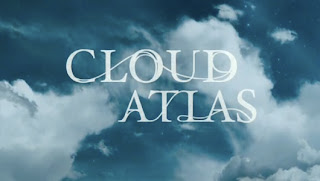Big Ideas
Sometimes films stick with you long after you've watched them. I saw "Cloud Atlas" a week ago, going in with fairly middling expectations, and haven't been able to shake it since. That's the power of movies that introduce interesting ideas and engage you in critical thinking. It's the same way many people felt after seeing "The Matrix" as well.
I put up my film review yesterday — and I noted some of the structural flaws that can be a distraction for viewers. I also noted that this isn't going to be a universally appealing film. Doubtless some will walk away angry, bored, or confused. Some, however, will be engaged.
I think that's what good art does. In 2009, I went to see "Watchmen." I was unfamiliar with the story prior to seeing the film — actually, I frequently like to go into the films cold and, if the story intrigues me, find out more about it or read the source material afterward. I find that if you know too much about the story before seeing the film, it can alter your impressions of the film. But if you read the source material afterward, it's easier to have an appreciation of both.
After seeing "Watchmen" at the midnight premier, I was engrossed and engaged. I saw the film four times in theaters, I read the graphic novel, and I read another book that broke down the graphic novel. I still watch the film with a critical eye and enjoy considering the bigger ideas that sit behind the narrative.
I think "Cloud Atlas" will be that kind of film. There are structural and cinematic flaws in the work, but the story, characters, and, most importantly, the ideas are fascinating. In a film criticism class I am taking now, it was suggested there are three ways movies work on us. The first is voyeuristic, meaning we connect with the film on a rational level. We see it as credible, plausible, and realistic. The second is that it is visceral, meaning that we connect on a gut level with the experience of the movie. We feel like we're there. And the third way is that it is vicarious, meaning we connect on an emotional and spiritual level. I think it's that last level that is both the hardest connection to make and the most varied. What is a vicarious experience for one could be a banal experience for another. But when those deep emotional connections are made, it engages us in a way nothing else can.
A movie like "Cloud Atlas" will succeed to the extent that it connects at that emotional level. For me, the film tapped into something inside of me that has been mulling the ideas over for days. That's a kind of connection that can take the viewing experience to another level. That's the kind of experience that connects you to a film, and makes you a passionate defender of it as a piece of art.
I have a few of these type of connections with films every year, and it's a connection that's renewed each time I view it again. With "Cloud Atlas," I know one viewing isn't possibly enough to contemplate, appreciate, and consider all that is being done. And I look forward to continuing that journey the next time I watch the film.




Comments
Post a Comment